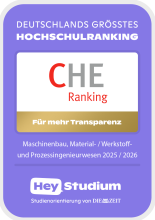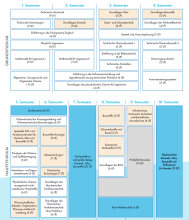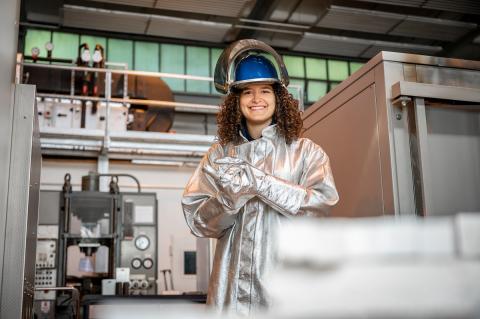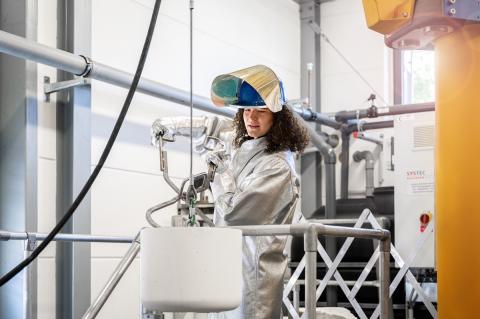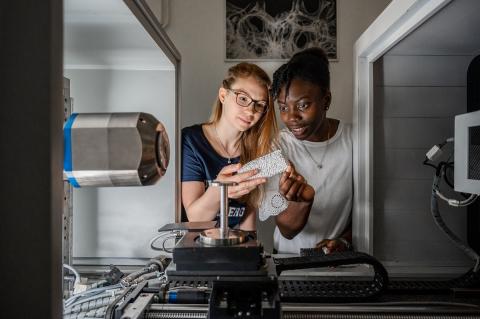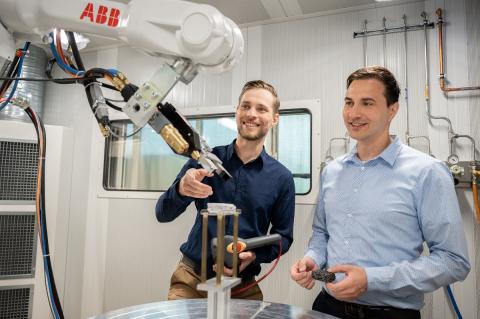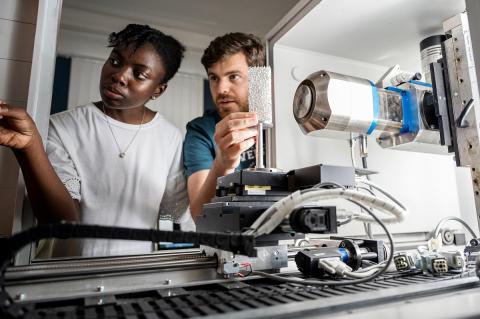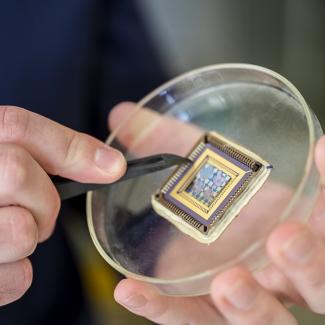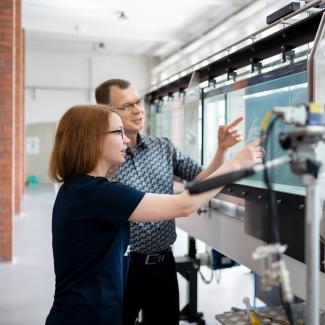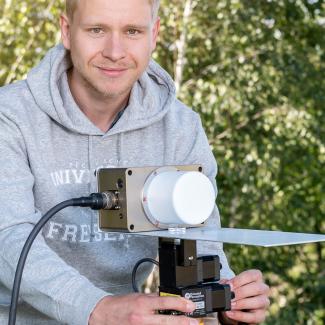Keramik, Glas- und Baustofftechnik
Innovative and creative! Engineers on the course conduct research into future materials for industry
From glass fibres and heat-insulating building materials to heat shields for space technology - rarely does an industry offer such an interesting field as ceramics, glass and building materials. This is where classic applications such as porcelain, container glass and bricks meet high-tech developments such as solar modules, diesel soot filters and fibre concretes. During production, from the raw material to the finished product, there are numerous tasks that need to be solved using interdisciplinary expertise. Knowledge of raw materials and their properties, processes and systems of the various technologies, the wide range of materials, testing and analysis methods are taught as well as aspects of environmental protection, marketing, quality assurance and technical language training.
Ceramics, Glass and Building Materials Technology is an engineering degree programme with a focus on process engineering. It covers the production of ceramics, glass and building materials in all process stages, from the raw material to the highly refined product, as well as the application of these products in a wide variety of areas and the recycling of the products at the highest possible level. The versatility of this degree programme also makes it possible to pursue individual interests, develop one's own strengths and acquire specialist knowledge in individual areas. In addition to a broad, interdisciplinary engineering and scientific basis, the degree programme includes specialist training in processes, methods and systems for ceramics, glass, enamel and building materials from the raw material to the end product, including questions of materials testing and analysis.
Practical skills are particularly important. Internships in various laboratories at the institute serve this purpose. The specialist internship in the 7th semester is an important part of the degree programme. Production technologies and production facilities in ceramics, glass and building materials companies are presented during specialised excursions. The professors maintain numerous contacts with companies and partner universities in Europe, Asia and America for partial studies abroad.
- Faculty
-
Faculty of Mechanical, Process and Energy Engineering (Faculty 4)
- Degree
-
Diploma (Dipl.-Ing.)
- Standard period of study
-
10 Semester
- Part-time possible
-
No
- Start of studies
-
Winter semester
- Admission requirement
-
Abitur or subject-specific higher education entrance qualification or an entrance qualification recognized as equivalent
Language requirement
- Application: with at least B1 level German
- Admission to the degree program: with C1 level German (e.g. DSH-2)
- language courses and DSH exam at TUBAF
- Prep Courses (Studienkolleg)
- Course language
-
German
- Process and plant engineering: e.g. in plant management, technology, division or department management
- Research and development: e.g. Companies with their own research department, research institutes, universities
- Quality assurance: e.g. company laboratories, production monitoring
- Material testing and failure analysis: e.g. material testing institutes, company laboratories
Information on the Basic Internship
A 6-week basic internship is required for this degree program (30 working days). Completion or partial completion of the internship before the degree course (after the Abitur) is recommended. The internship can also be completed during the course of study. The requirements for the basic internship can be found in the adjacent download. Dr. Dög will be happy to answer any questions you may have (see the box on the right “Fachberatung”).
Reasons for TUBAF:
Unique degree program
The unique degree course in Ceramics, Glass and Building Materials Technology at the TU Bergakademie Freiberg provides you with interdisciplinary know-how that offers the best career opportunities. Relevant companies near and far are constantly looking for graduates of this course! Materials of the future are an exciting field of activity.
Students take center stage
At TUBAF, the needs of the students are strongly taken into account. Small groups, close contact with professors and their teams as well as individual support also characterize studying in Freiberg. Future-oriented skills and creative personalities are encouraged through direct exchange. There are a manageable number of examinations, strict study requirements are supported, numerous elective options as well as application and research relevance at an early stage of the course. Accommodation is affordable and sufficiently available.
Strong research university
For the size of a university, TUBAF is very small, but very strong in research. The researchers need support from students and research assistants. As a paid research assistant, students can combine their studies, research and part-time job and gain insights into current research. Graduates are also the doctoral students of tomorrow, with whom we enjoy working together on the challenges of the future.
International in Freiberg
Lecturers maintain and benefit from international contacts in the context of research. Students are supported in organizing a semester abroad or a Bachelor's thesis at an international research institution. TUBAF also has excellent contacts with sponsors who support students in the form of scholarships. The chance of obtaining a scholarship is quite high. Tandem partners are also regularly sought.
The city of Freiberg scores with a low cost of living, affordable and sufficient living space and an active student life.
What Alumni Say
"It's not just life around the campus that's great, Freiberg is also characterized by the personal contact with lecturers and professors. Short distances from the university buildings to the canteen and library are also an advantage :-) And student life is not neglected while studying. The proximity to Dresden and Chemnitz is also an advantage."
Presentation of the study program (german)
The fascination of technology - studying engineering in Freiberg (german)
Studying at the Institute of Ceramics, Glass and Building Materials Technology (german)
Rankings
